One small town has become a dumping ground for the world's waste and it's causing a stink.
Get Started for FREE
Sign up with Facebook Sign up with X
I don't have a Facebook or a X account

 Your new post is loading... Your new post is loading...
 Your new post is loading... Your new post is loading...
Cartoon figures and young stars will be banned from many adverts in a bid to protect children.
Graham Watson's insight:
There can be no doubt that problem gambling generates negative externalities, and the government is looking to further regulate the industry. In this case, it's trying to overcome the problems associated with young people gambling, by regulating how the sector advertises gambling.
Electronic waste hazardous due to toxic parts was tracked to developing countries
Graham Watson's insight:
The issue of waste is a pressing one in developed economies, and this example is no different. The developed world produces an awful lot of e-waste, and recent research suggests that the UK is Europe's worst offender for exporting it to developing nations.
As the article points out "UK’s shipments went from council recycling facilities to Nigeria, Tanzania and Pakistan", another example of how the developed world is offshoring all sorts of environmentally unfriendly aspects of production and consumption to the developed world.
Environmental campaigners say Wales should take the initiative with a tax on disposable coffee cups.
Graham Watson's insight:
The latte levy is an attempt to reduce waste - and Welsh politicians are thinking of being the first-mover in an attempt to get rid of single use coffee cups.
James Blunt is best known as a singer, but he's also an outspoken advocate for ocean conservation. Blunt sat down with Jim Edwards, editor-in-chief of Business Insider UK, to discuss why he's campaigning for sustainable fishing and why he is a spokesperson for the Blue Marine Foundation.
Graham Watson's insight:
No, you are reading the headline correctly: James Blunt is a campaigner for marine conservation.
This Business Insider report looks at the issue, highlighting how unsustainable fishing practices are depleting this vital common access resource.
Ten-year-olds in the UK have already consumed 18 years’ worth of sugar, says Public Health England.
Graham Watson's insight:
Even the Daily Mail led with this today: the news that UK children are purported to have over-consumed sugar to a remarkable extent. Public health campaigners are aghast and have turned their attention to this, arguing that there's a need for intervention to reduce sugar consumption.
However, free market economists argue that this is likely to result in government failure because the links between sugar consumption and childhood obesity are 'unclear' and the fact that intervention always has all sorts of unintended consequences that are likely to mean that overly stringent regulation of the market.
Private hire vehicles including Uber will no longer be exempt from the daily £11.50 rate from April.
Graham Watson's insight:
The congestion charge is being extended to include minicabs and other private hire vehicles in London, with them now being liable to pay the £11.50 charge that they were previously exempted from.
However, trades unions are arguing that such a move is simply penalising some of London's lowest paid workers, and taxi drivers are concerned that it is reducing the asset value of their cabs.
The city of Grodno in Belarus has found a solution to solid waste by recycling. With the help from the World Bank, the city is reducing environmental pollution and bringing financial benefits.
Graham Watson's insight:
Don't say it's not an esoteric mix of material on here - this clip looks at improving waste management in the city of Grodno in Belarus! Prior to 2017, all waste in the city was buried in landfill. However, it has now moved to a more sophisticated system of sorting waste, and reduced the negative externalities associated with its disposal.
What impact do Christmas trees have on the environment and should you go fake or fir?
Graham Watson's insight:
Merry Christmas everyone!
But this Reality Check clip looks at the environmental impact of the Christmas tree - fake or fir? The implications of the Christmas tree depend upon how you dispose of your tree, the method of production of your plastic tree, and where it has come from.
Bah, humbug!
Animal agriculture represents a quarter of global greenhouse gases. FT reporters examine the environmental case for going vegan, whether the City could be part of a move away from animal products and how difficult it still is to turn to a plant-based diet.
Graham Watson's insight:
Alas, for the FT, the Economist got there first - but if you want another perspective on the environmental implications of increased agricultural production, here it is.
Millions of tonnes of clothes end up in landfill every year—it’s one of the fastest-growing categories of waste in the world. How can the fashion industry continue to grow while addressing the environmental need for people to buy fewer clothes?
Graham Watson's insight:
The Economist has been in excellent form recently, with this another first-rate clip looking at the true cost of 'fast fashion', producing low cost, high volume clothes that are designed to be discarded.
This clip looks at the environmental implications of this: despite some recycling, in the UK more than 300,000 tons of clothes end up in landfill sites. It is the fastest growing category of waste in the country. However, the growth of the middle class across the globe means that this is a truly international problem.
Analysis suggests 116m tonnes of dairy products are wasted globally, with almost half lost before they even reach a store
Graham Watson's insight:
And yet more market failure - this time in the dairy sector, where the newly formed Global Academy of Agriculture and Food Security estimates that the equivalent of one pint in every six is thrown away - half of that even before dairy products reach the store.
This again highlights the level of waste in the food industry, and the fact that for too long we've been careless in our use of food, and chosen to ignore the fundamental economic problem, of scarcity and choice, to the probably detriment of future generations.
Government scientists warn that unchecked global warming will wreak havoc on the US economy.
Graham Watson's insight:
More Trumponomics, more ignorance. Although the notion of the Donald channeling his inner Victor Meldrew is moderately amusing.
The release of the latest National Climate Assessment - the Fourth - suggests that the US faces devastating effects as a result of climate change. The President, of course, doesn't believe it: why would he trust these so-called experts?
But it's worrying that the President dismisses this sort of thing so readily. I wonder what history will make of this interlude in American history. I suspect future generations will simply be aghast. If climate change hasn't finished them off, of course. |
Global study sets out how industry could make waste reduction pay, using data taken from across 12 countries
Graham Watson's insight:
A lovely article that highlights how tackling food waste in restaurants could generate significant returns for those companies that look to tackle the issue.
It looks at how simple measures - like weighing the amount of food waste has had an impact on the amount of edible food being disposed of, as well as highlighting the scale of the problem: "In the UK alone almost 900,000 perfectly edible, freshly prepared meals end up in the bin every day because they haven’t been sold in time by restaurants and cafes."
Drivers are warned London's A406 North Circular Road should be "avoided at all costs".
Graham Watson's insight:
Fantastic illustration of one of the negative externalities of congestion: the loss of output due to workers, and goods, being stuck in traffic. This BBC article highlights the most congested roads in the UK, and in doing so, it is hoped that some commuters might avoid them.
Certainly the headline says it all: "Traffic jams cost drivers a week of their lives a year". That's got a decent sized opportunity cost.
What are leading UK fashion retailers doing to reduce the environmental and social impact of the clothes and shoes they sell?
Graham Watson's insight:
The fashion industry isn't terribly environmentally-friendly, accounting for 3% of global carbon emissions per year, and an awful lot of waste.
This Newsnight report looks at the Commons Environmental Audit Committee report into the environmental and social impact of the industry, and the reluctance of the industry to deal with its negative externalities.
After extreme weather-related events, there is ‘need for international cooperation’
Graham Watson's insight:
Nice application of game theory at the margin, and certainly the economics of co-operation. However, the World Economic Forum argues that tackling climate change is being made harder by geopolitical tension.
Such a lack of agreement makes it far harder to tackle issues relating to common access resources, such as the Earth's atmosphere.
Countries in the Europe and Central Asia region of the World Bank account for 10 percent of the world’s Co2 emissions. Find out how World Bank projects are addressing this challenge by reducing emissions through sustainable land use, new technologies, and energy efficiency initiatives.
Graham Watson's insight:
I'm just about to start preparing material on market failure, so this is a timely clip that highlights how climate change is starting to impose significant external costs on us all.
This World Bank clip looks at how technology might be able to help, increasing energy efficiency and reducing dependence upon 'dirty' fuels and technologies.
Dame Sally Davies wants ban on added sugar in baby milk, and price subsidies for fruit
Graham Watson's insight:
And just prior to everyone gorging themselves over Christmas, the country's Chief Medical Officer, Dame Sally Davies, wants a ban on adding sugar to baby food, and further taxes to cut the nation's salt and sugar intake.
However, although this is the headline grabber, the real meat to the report is in looking to 2040, and trying to normalise healthy behaviours. This, in the longer-term is the key to resolving the negative externalities associated with our eating and drinking habits.
Voluntary plan agreed after bookmakers bend to pressure over children’s exposure to gambling
Graham Watson's insight:
The Guardian comes rather late to the party as far as the voluntary agreement to ban pre-watershed advertising of gambling during sporting events.
Our air, drinking water, food supply and shelter are all at risk. Our survival depends on urgent change. Watch this video produced for COP24 United Nations Climate Change Conference 2018
Graham Watson's insight:
This is an excellent clip that highlights the negative externalities associated with climate change - it identifies the health costs - and might be part of my introduction to market failure next term.
Britain's leading gambling companies voluntarily agree to a "whistle-to-whistle" television advertising ban.
Graham Watson's insight:
The gambling sector has sought to self-regulate rather than face government intervention - with the leading companies voluntarily agreeing to a whistle-to-whistle ban on advertising. If that means seeing less of Ray Winston's face, then I see that as a good thing.
However, it's an attempt to remove some of the factors that might contribute to creating the issues associated with problem gambling, particularly among the young, I suspect.
Often reviled for its pungent odour, the crop has become a delicacy in China – and export demand is rocketing
Graham Watson's insight:
D&S. And durian. What more could you want?
Fewer of the adverse side effects of intensive durian farming perhaps?
The maker of Coco Pops and Corn Flakes will start to roll out new nutritional labelling in January.
Graham Watson's insight:
Remarkably, the food industry hasn't got a consistent approach to providing information about the nutritional content of food. For example, most of us look for 'traffic light' labels, but up until now Kellogg's haven't used this scheme.
However, after listening to a number of stakeholders, it has decided to adopt the labelling and this should make comparing the nutritional content of its cereals easier.
Interest in vegan food and its associated health benefits has been booming across the rich world. A global retreat from meat could have a far-reaching environmental impact.
Graham Watson's insight:
This detailed, first-class Economist clip looks at the environmental implications of veganism, starting from the premise that, at present, the food system is responsible for 25% of greenhouse gas emissions, rising to around 50% by 2050.
However, if the world went vegan, it could reduce emissions by 75%, relative to current levels. It's a thought-provoking clip, highlighting the damaging implications of livestock farming - not least the remarkable fact that "if cows were a country they'd be the world's third largest greenhouse gas emitter". |



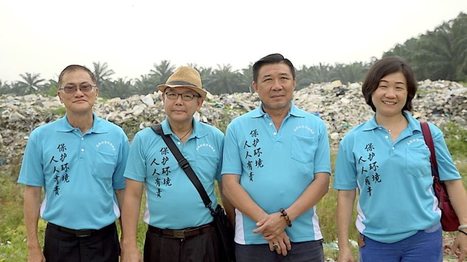


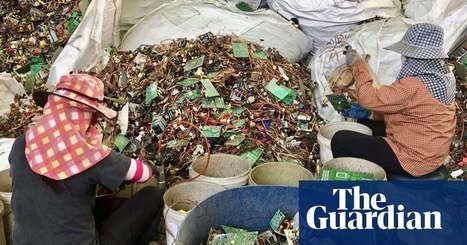


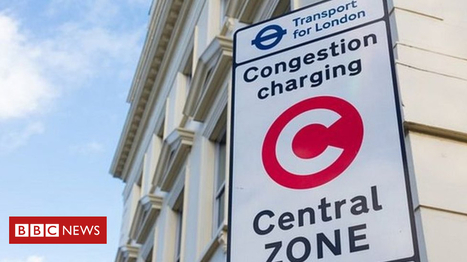

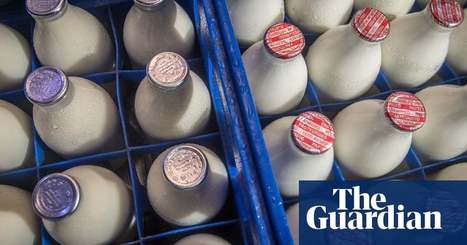
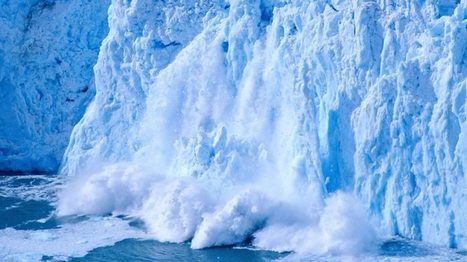


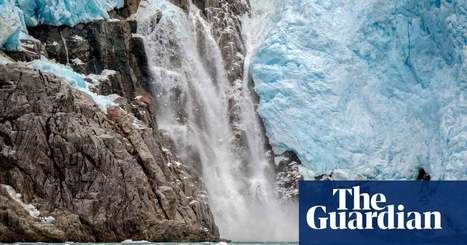
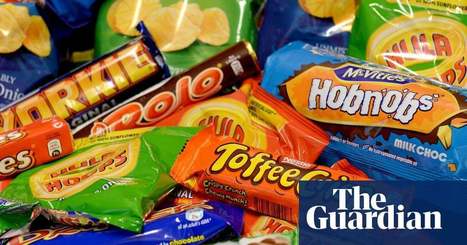


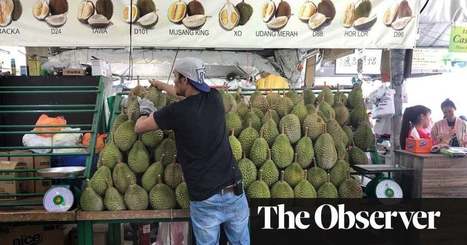






And this is where much of that plastic waste generated both in the West and in China, ends up. The town of Jenjarom in Malaysia has become the epicentre of the illegal plastic recycling industry, and as a result is having to deal with sizeable negative externalities.